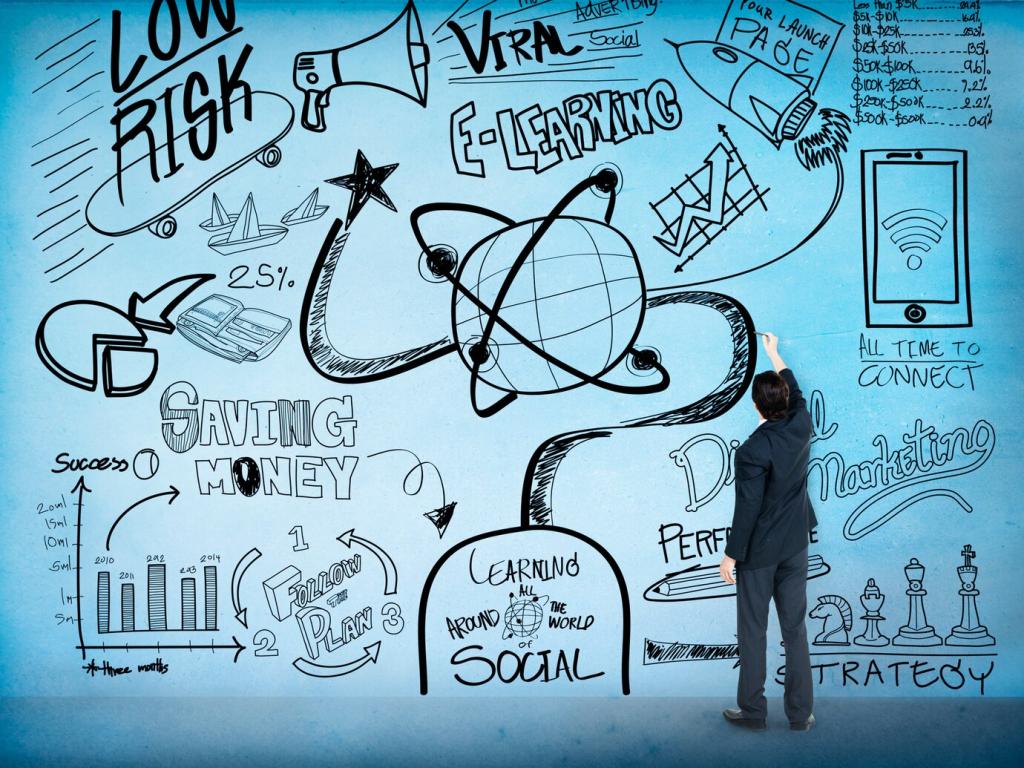Life Coaching Trends for Personal Development

Technological Integration
With the advent of advanced video conferencing tools, scheduling apps, and secure messaging platforms, coaches can engage with clients seamlessly from across the globe. This integration of technology not only breaks down logistical barriers but also enables more frequent and flexible communication, allowing clients to receive timely guidance and feedback. As artificial intelligence and machine learning advance, some coaches are harnessing these technologies to track client progress and personalize experiences, ultimately enhancing outcomes.

Expanded Client Reach
Virtual coaching allows life coaches to connect with a vastly more diverse range of clients. Individuals from different cultures, backgrounds, and career stages are now within reach, enabling coaches to bring their expertise to new demographics. This expanded reach results in a richer exchange of ideas and perspectives, fostering growth not only for clients but also for coaches themselves. As geographic limitations dissolve, life coaching becomes more inclusive and representative of the global community.
The mind-body connection is increasingly at the forefront of coaching methodologies. Life coaches are incorporating practices from mindfulness, meditation, breathwork, and even somatic therapies to help clients tune into physical cues and emotional states. By addressing both mental and physical aspects of well-being, coaches are supporting clients in cultivating lasting change, stress management, and greater self-awareness. This approach helps people align their actions with their holistic goals, leading to more sustainable personal transformation.

Integration of Positive Psychology
01
Strengths-Based Approaches
Focusing on strengths rather than weaknesses is a hallmark of positive psychology in life coaching. Coaches guide clients to identify, appreciate, and apply their innate talents in various areas of their lives. By harnessing these strengths, individuals experience greater motivation, performance, and self-esteem. This strengths-based lens cultivates a growth mindset, encouraging clients to view setbacks as opportunities for learning and development rather than as indications of failure.
02
Cultivating Optimism and Gratitude
Life coaches are incorporating strategies to foster optimism and gratitude, both of which are linked to enhanced well-being and resilience. Practices such as gratitude journaling, savoring positive experiences, and reframing negative self-talk empower clients to approach challenges with hopefulness and positivity. By shifting attention toward what is going well and expressing appreciation for everyday successes, individuals are better equipped to overcome obstacles and maintain motivation throughout their personal development journey.
03
Building Psychological Resilience
Resilience is a critical skill in navigating life’s uncertainties and setbacks. Life coaches trained in positive psychology techniques help clients build psychological fortitude by teaching stress management, emotional regulation, and adaptive coping strategies. The emphasis is on helping individuals recover more quickly from adversity, adapt to change, and return to a state of thriving. Over time, these resilience skills become foundational tools for sustained personal and professional growth.
Focus on Goal Setting and Accountability
Understanding how the brain processes motivation and reward has transformed the way coaches set goals with clients. Modern coaching incorporates neuroscientific research to help individuals craft goals that are specific, achievable, and intrinsically motivating. The use of visualization, affirmations, and habit formation strategies supports the brain’s capacity to develop new behaviors. By aligning goals with the brain’s natural functioning, clients improve their chances of lasting success.

Specialization and Niche Expertise
Career and Leadership Coaching
Specialization in career and leadership coaching is helping professionals excel in today’s complex workplace. Coaches with backgrounds in business, management, or organizational psychology offer tailored support for issues such as career transitions, executive presence, and team leadership. This niche expertise enables clients to develop skills and strategies directly relevant to their goals, resulting in more measurable professional outcomes and personal satisfaction within their work lives.
Wellness and Health Coaching
There is a rising demand for coaches who specialize in holistic health and well-being. These coaches combine knowledge of nutrition, physical activity, stress management, and mindset to support clients seeking lifestyle changes. Through integrated wellness coaching, individuals can address issues ranging from chronic stress to work-life balance, developing sustainable habits that drive both physical and emotional health. As health awareness grows, so does the value of expertise in this field.
Diversity, Equity, and Inclusion Coaching
In response to global movements for social justice and inclusion, there is increasing emphasis on diversity, equity, and inclusion (DEI) coaching. These specialists work with individuals and organizations to challenge biases, cultivate anti-racist practices, and foster environments where everyone can thrive. DEI coaches empower clients to recognize and dismantle systemic barriers, build intercultural competencies, and develop a deeper sense of belonging and purpose in both their personal and professional spheres.
The Influence of Mindfulness and Presence
Meditation and Mindfulness Practices
Many life coaches now incorporate guided meditation, breathwork, and other mindfulness techniques into their sessions. These practices help clients achieve greater calm, clarity, and emotional regulation, making it easier to connect with their inner motivations and reduce stress. Engaging in mindfulness exercises enables individuals to become more present and intentional, empowering them to respond to life’s demands with greater awareness and self-compassion.
Enhancing Focus and Productivity
Coaches emphasize the importance of presence as a tool for increasing focus and productivity. By teaching techniques to minimize distractions and anchor attention in the moment, clients can cultivate deeper engagement in their daily activities. This ability to maintain focus not only boosts efficiency but also enriches the experience of achievement, as people are more attuned to the progress they are making. Over time, greater focus translates into better outcomes across all areas of life.
Emotional Self-Regulation
Presence and mindfulness are potent tools for managing emotions and reducing reactivity. Coaches work with clients to develop the skills required to pause, reflect, and choose thoughtful responses rather than automatic reactions. This practice fosters emotional intelligence and resilience, allowing individuals to handle challenges with greater ease and maintain emotional balance, even under pressure. As a result, clients report improvements across relationships, stress management, and overall life satisfaction.
Data-Driven and Outcome-Oriented Coaching
Personalized Assessments
By using psychometric tools, self-assessments, and strengths inventories, coaches gain detailed insights into a client’s personality, values, and preferences. These data points provide a solid foundation for customizing coaching strategies, ensuring that interventions align closely with individual needs and goals. Personalized assessment also offers clients valuable self-knowledge, catalyzing self-reflection and growth.
Measurable Success Metrics
Outcome-oriented coaching emphasizes the importance of tracking and demonstrating progress. Coaches collaborate with clients to define concrete success indicators, whether related to behavior change, emotional well-being, or achievement of set goals. Regularly reviewing these metrics ensures accountability and motivation, while also enabling both coach and client to celebrate milestones and make data-informed adjustments as needed.
Continuous Feedback Loops
Ongoing feedback is essential for continuous improvement in the coaching journey. Digital tools allow coaches to collect feedback in real time, assessing the effectiveness of interventions and adapting strategies accordingly. This creates a dynamic, responsive environment in which both successes and challenges are addressed promptly. Continuous feedback fosters trust, transparency, and a sense of partnership, empowering clients to stay engaged and proactive in their development.

The Evolution of Coaching Relationships
Collaborative Coaching Partnerships
Instead of a top-down, expert-driven model, today’s coaching relationships are increasingly collaborative. Coaches act as facilitators and partners, co-creating pathways for growth alongside clients. This empowerment-based approach encourages clients to take greater ownership of their development, generate their own insights, and build confidence in their abilities. As a result, transformational changes are more likely to endure.


Long-Term Growth Orientation
More clients are seeking ongoing support rather than short-term fixes. Coaches are therefore focusing on building relationships that promote continuous learning, self-improvement, and adaptability. Long-term coaching enables deeper exploration of patterns, more comprehensive goal achievement, and sustainable personal transformation. This approach reflects a shift from crisis management to a proactive orientation toward lifelong growth.
